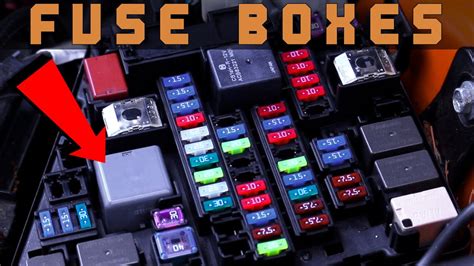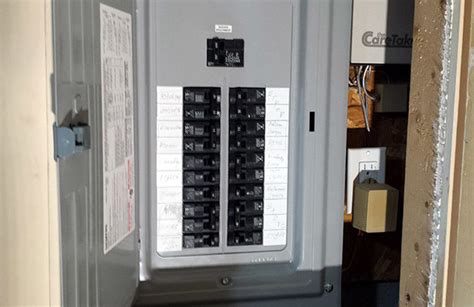electric fuse box types What is a Fuse Box? Fuse boxes can essentially be explained as control panels for the electrical system in a particular location. They are the location at which incoming power is . WDI builds wood boxes, gift packs, ad specialties, promotional items, displays and more! We have 80+ years experience in the wood products manufacturing industry and continue to grow and adapt our products, processes and capabilities.
0 · understanding a fuse box
1 · residential fuse boxes
2 · older home fuse box
3 · inside a fuse box
4 · house fuse box wiring diagram
5 · home electrical fuse box diagram
6 · fuses and fuse boxes explained
7 · electrical fuse box diagram
$329.00
understanding a fuse box
does a metal switch box grounded
residential fuse boxes
There are two types of bases and screw-in fuses: the Edison base (found on Type T fuses) and the rejection base (found on Type S fuses). Edison base (Type T) : This base . There are five main things you should keep in mind when shopping around for fuse boxes: installation price, warranty length, circuit rating (number of circuits), type/size requirements (single- or three-phase), and . What is a Fuse Box? Fuse boxes can essentially be explained as control panels for the electrical system in a particular location. They are the location at which incoming power is .
Here is an essential guide to fuse boxes for homeowners: Types of fuse boxes. There are two types of fuse boxes: one uses fuses, and the other .Fuses are classified by their voltage and current ratings, as well as by their speed of response to overloads (fast or slow blow). Now, let’s dive into the most common types of electrical fuses, . Circuit breaker panels and fuse boxes are necessary elements in electrical systems, each playing a key role in safeguarding circuits from overloads and faults. Despite both offering safety, they employ different mechanisms. .

In this guide, we’re going to tell you what you need to know about household fuse boxes and how they protect your home. The terms “fuse box” and “electrical panel” get used .Want to learn more about fuse boxes? Find information on the main switch, fuses and circuit breakers, and residual current devices in our handy guide.
does electric fireplace need a box
If you have a fuse box, it’s important to use the right type of fuses to prevent damaging your equipment or risking a house fire. Three styles are in use today: Type-T (Edison base) fuses are the standard for most 120- and 125-volt . There are two types of fuse boxes—Type-S and Type-T. The main difference between them is the base. Type-S fuses use a different-size base with a rejection feature that will only allow the right-sized Edison-type socket with an adapter. There are two types of bases and screw-in fuses: the Edison base (found on Type T fuses) and the rejection base (found on Type S fuses). Edison base (Type T) : This base resembles a light bulb base and fits the standard sockets in old fuse boxes.There are five main things you should keep in mind when shopping around for fuse boxes: installation price, warranty length, circuit rating (number of circuits), type/size requirements (single- or three-phase), and capacity considerations (the amount of power needed by all electrical devices).

What is a Fuse Box? Fuse boxes can essentially be explained as control panels for the electrical system in a particular location. They are the location at which incoming power is divided into separate circuits. Typically, they feature a central switch controlling: The electricity supply to the entire property Here is an essential guide to fuse boxes for homeowners: Types of fuse boxes. There are two types of fuse boxes: one uses fuses, and the other one uses breakers. Fuses are older technology. They are disposable and created to protect a house from electrical shorts or overload. One must remove the fuse from the box to shut off the power.Fuses are classified by their voltage and current ratings, as well as by their speed of response to overloads (fast or slow blow). Now, let’s dive into the most common types of electrical fuses, their applications, and how to choose the right one for your needs.
Circuit breaker panels and fuse boxes are necessary elements in electrical systems, each playing a key role in safeguarding circuits from overloads and faults. Despite both offering safety, they employ different mechanisms. Circuit breaker panels use switches that can be reset after they trip, offering a handy and cost-efficient solution.
In this guide, we’re going to tell you what you need to know about household fuse boxes and how they protect your home. The terms “fuse box” and “electrical panel” get used interchangeably but there are significant differences. The most obvious is one uses fuses and the other uses breakers. Simple, right?
Want to learn more about fuse boxes? Find information on the main switch, fuses and circuit breakers, and residual current devices in our handy guide.
If you have a fuse box, it’s important to use the right type of fuses to prevent damaging your equipment or risking a house fire. Three styles are in use today: Type-T (Edison base) fuses are the standard for most 120- and 125-volt household circuits.
There are two types of fuse boxes—Type-S and Type-T. The main difference between them is the base. Type-S fuses use a different-size base with a rejection feature that will only allow the right-sized Edison-type socket with an adapter. There are two types of bases and screw-in fuses: the Edison base (found on Type T fuses) and the rejection base (found on Type S fuses). Edison base (Type T) : This base resembles a light bulb base and fits the standard sockets in old fuse boxes.There are five main things you should keep in mind when shopping around for fuse boxes: installation price, warranty length, circuit rating (number of circuits), type/size requirements (single- or three-phase), and capacity considerations (the amount of power needed by all electrical devices). What is a Fuse Box? Fuse boxes can essentially be explained as control panels for the electrical system in a particular location. They are the location at which incoming power is divided into separate circuits. Typically, they feature a central switch controlling: The electricity supply to the entire property
Here is an essential guide to fuse boxes for homeowners: Types of fuse boxes. There are two types of fuse boxes: one uses fuses, and the other one uses breakers. Fuses are older technology. They are disposable and created to protect a house from electrical shorts or overload. One must remove the fuse from the box to shut off the power.
Fuses are classified by their voltage and current ratings, as well as by their speed of response to overloads (fast or slow blow). Now, let’s dive into the most common types of electrical fuses, their applications, and how to choose the right one for your needs. Circuit breaker panels and fuse boxes are necessary elements in electrical systems, each playing a key role in safeguarding circuits from overloads and faults. Despite both offering safety, they employ different mechanisms. Circuit breaker panels use switches that can be reset after they trip, offering a handy and cost-efficient solution. In this guide, we’re going to tell you what you need to know about household fuse boxes and how they protect your home. The terms “fuse box” and “electrical panel” get used interchangeably but there are significant differences. The most obvious is one uses fuses and the other uses breakers. Simple, right?
Want to learn more about fuse boxes? Find information on the main switch, fuses and circuit breakers, and residual current devices in our handy guide.

$12.49
electric fuse box types|inside a fuse box